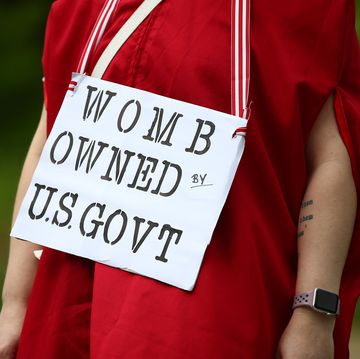Before she left the house to meet up with Khalil Wheeler-Weaver on November 22, 2016, Sarah Butler told her mom she was meeting a friend and texted him, “You’re not a serial killer, right?” Ten days later, the 20-year-old college student was found dead. She had been strangled, her body covered with leaves and left in a nature reserve.
Butler, a lifeguard at the YMCA, initially connected with Wheeler-Weaver online and met him after he offered to pay her $500 for sex, and after backing out the first time, they made plans to meet in person. Her texts to him were made public during the opening of Wheeler-Weaver’s triple-murder trial this week, as reported by the Washington Post. The 23-year-old is also accused of killing two other women and attempting to kill a fourth and was arrested after Butler’s family created a sting operation. (Wheeler-Weaver admitted that he was with all the victims before they went missing but denied killing them.)
According to prosecutors, he “targeted young black women who turned to sex work while coping with mental health issues or homelessness.” Why that specific group? The police believe he chose those women because no one would care if they went missing. Essex County assistant prosecutor Adam Wells previously said, “They were viewed as somehow less than human, less valuable. That maybe they wouldn’t be missed.”
His alleged first victim was a 19-year-old named Robin West who struggled with mental health issues. She was killed in September 2016, and her body was so burnt that it took weeks to identify her using dental records. At the time, Wheeler-Weaver was said not to “look like someone who would’ve done something like this,” and the police said he was “calm” and “helpful.”
During the time police were investigating West’s case, another woman named Joanne Brown, who was homeless and had mental health issues, was found dead, strangled with a jacket and left in an abandoned house.
The fourth woman, T.T., came forward shortly after Brown’s body was found and described a terrifying encounter in which she accused Wheeler-Weaver of trying to strangle her after she agreed to have sex with him for money. She claimed she passed out during the incident and was able to convince him to take her to a motel, where she locked him out and called the cops. When the police arrived, instead of focusing on the alleged attempted murder, they questioned her about being a prostitute, according to her testimony in court last month. A week after his encounter with T.T., he met Butler.
After Butler’s body was found, it took police five days to arrest him, thanks to a sting operation set up by her parents, her sister, and her friends. They did it by logging into her social media accounts. When they logged into Tagged, an app associated with sex crimes and child pornography, they figured out who she met up with that night. Then they created a fake profile and were able to convince him to meet in person. When he showed up, the police were there.
Wheeler-Weaver’s trial will continue in Essex, New Jersey, this week.
Shannon is a news writer at Cosmopolitan.com, and when she's not obsessing about Cardi B, she's thinking about Justin Bieber and still trying to memorize Beyoncé's Beychella choreography.












